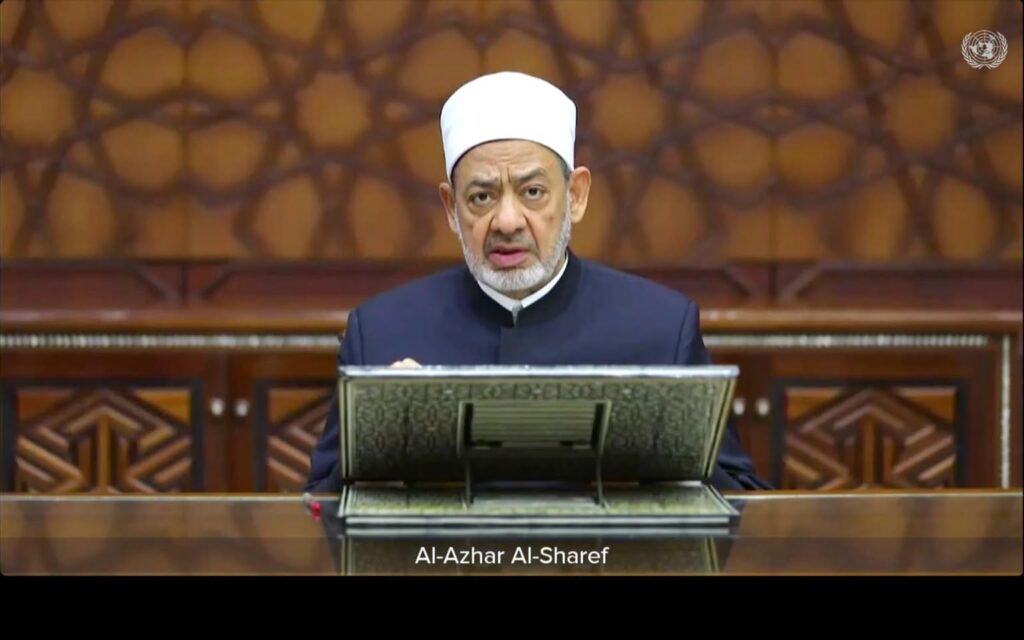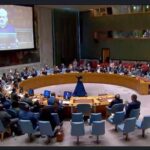The Grand Imam of Al-Azhar and Chairman of the Muslim Council of Elders, His Eminence Dr. Ahmed Al-Tayeb, delivered a historic speech at the United Nations Security Council Meeting, emphasizing that embracing human fraternity is the best option for addressing contemporary global crises.
His Eminence stated that the crises threatening humanity—both in the East and the West—could have been avoided if contemporary civilization had not distanced itself from religion and neglected its teachings. He urged world leaders to advocate for peace and love, oppose hate speech, and reject the manipulation of religion to fuel conflicts.
During his speech, the Grand Imam highlighted the collaboration between Al-Azhar, the Muslim Council of Elders, the Catholic Church, and various religious institutions to promote interfaith dialogue and peaceful coexistence. He referenced the 2019 Document on Human Fraternity, co-signed with Pope Francis in Abu Dhabi, as a significant step toward fostering mutual understanding.
His Eminence underscored the need for international cooperation in addressing pressing global challenges, including climate change, wars, and conflicts. He called on political leaders and decision-makers to support these efforts to achieve lasting international peace and security.
Addressing misconceptions about Islam, the Grand Imam stated:
*”It is neither just nor accurate to claim that Islam is a religion of the sword or war. History shows that war in Islam is an exception, permissible only for self-defense, protection of land, and safeguarding dignity. The phenomenon of terrorism, which Islam is not responsible for, is primarily driven by global political and economic policies that disregard moral principles.”*
He called for an end to ongoing conflicts in Iraq, Afghanistan, Syria, Libya, Yemen, and Eastern Europe, while condemning the oppression of the Palestinian people. He criticized the international community’s silence on Palestinian rights and the repeated violations against Islamic and Christian holy sites. The Grand Imam urged the United Nations Security Council to recognize an independent Palestinian state with Jerusalem as its capital.
His speech also touched on the plight of refugees fleeing war, the destruction of family structures, environmental crises, and the importance of upholding human dignity. He affirmed his commitment to peace, stating:
*”I am a humble Muslim from the East, unaffiliated with any political ideology. I advocate for peace and feel a deep sense of fraternity with all people, regardless of their ethnicity, religion, or language. This is what Islam and divine scriptures teach us.”*
He emphasized that human diversity—differences in race, language, and belief—is part of divine will, and any attempt to enforce a single religion, culture, or civilization contradicts this principle. He cited the Quran, which advocates peaceful coexistence rather than conflict or supremacy.
His Eminence concluded by praising Egypt as a symbol of peace and civilization and expressed gratitude to the United Arab Emirates for hosting the Security Council session. He also commended UN Secretary-General António Guterres for recognizing the vital role of religions and human fraternity in promoting global peace.



